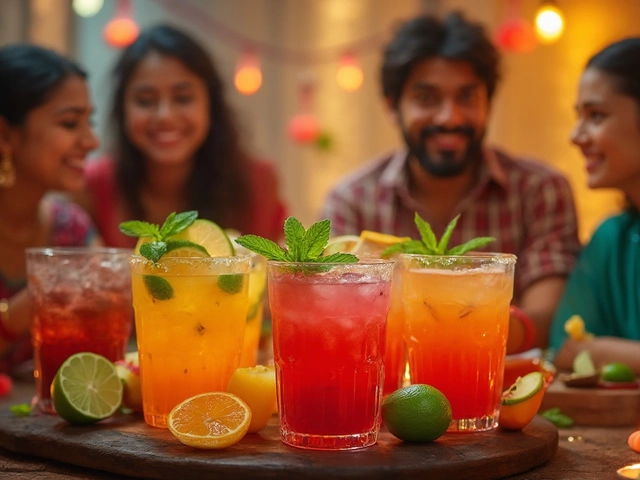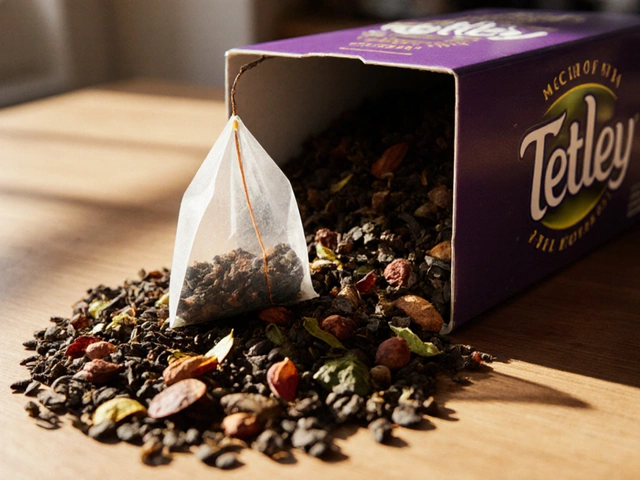
Ever taken a sip of wine or whiskey and wondered why it feels like your taste buds are staging a protest? You're definitely not alone. Many folks find themselves in a similar boat, puzzled by their aversion to the taste of alcohol when everyone else seems to enjoy it. So, what's going on here?
First off, let's talk about the science. Our sense of taste isn't just about posting tongue selfies; it's a complex system influenced by genetics, past experiences, and even culture. Some people are just more sensitive to the bitterness present in many spirits. It's due to genetic variations that affect how taste receptors operate, making what’s merely sharp to some downright unbearable to others.
Then there's the personal side of things—your unique experiences and cultural background can shape your attitude toward alcohol. The way spirits are introduced into your life, maybe through a sweet cocktail at a party or a bitter sip of craft beer, could frame your taste memories in a big way.
- The Science Behind Taste Aversion
- Genetics and Bitter Sensitivity
- Cultural and Personal Influences
- Ways to Develop a Taste for Alcohol
- Alternative Enjoyment of Spirits Without Drinking
The Science Behind Taste Aversion
Okay, let’s get into the nitty-gritty of why alcohol might taste like liquid fire to some folks. The whole deal starts with taste buds. These little guys aren’t just hanging around for decoration—they’re pretty complex and can be responsible for why people hate the taste of alcohol.
Everyone has taste receptors that detect sweet, sour, salty, umami, and, of course, bitter flavors. Here’s the kicker: when it comes to spirits, bitter tends to take center stage. That’s because many alcoholic drinks, especially spirits, are packed with compounds that trigger these bitter receptors.
What's interesting is that everyone's taste buds are wired slightly differently. There’s a little thing called a “super-taster,” a term used for people with a higher number of taste receptors. Super-tasters experience tastes way more intensely. If you’re in this group, a sip of a strong spirit can be overwhelmingly bitter or harsh.
And it’s not just about the tongue. Your senses of smell and taste are closely linked, meaning that unpleasant aromas can make things taste worse. Plus, there’s genetics at play. Some people are just genetically more sensitive to bitterness.
There's even research suggesting that exposure over time influences our tastes. So, if your first encounters with alcohol weren't exactly pleasant, your brain might be setting up roadblocks whenever a drink gets near your lips. But don’t worry, it’s not just you—a sizable chunk of people around the world experience this too.
Genetics and Bitter Sensitivity
Alright, let's dive into some cool sciencey stuff! Ever wonder why you taste things differently than your buddy sitting next to you at the bar? Well, a lot of it might come down to genetics, especially when it comes to alcohol taste.
Our taste buds are like little detectors, picking up flavors like sweetness, saltiness, and most relevant here, bitterness. Now, some people have a heightened sensitivity to bitterness because of a genetic variation in their TAS2R38 gene, which influences how intensely they perceive certain bitter compounds. This is why some of us might take a swig of gin or whiskey and think it tastes like something out of a chemistry lab.
A fascinating study found that individuals with certain variants of this gene are more likely to recoil at the bitterness in alcohol, making it a tricky taste to handle when everyone's raising glasses in a toast. An expert in the field, Dr. Linda Bartoshuk, once noted:
"Understanding that these taste perceptions are inherited can help people realize it’s not just about preference—it's about biology."
For those carrying this genetic trait, alcohol isn't just strong; it can be downright overwhelming. So, no—you're not fussy or weird; your taste buds just have a different wiring diagram.
Alcohol taste isn't merely a quirk of flavor; it's an interaction highly influenced by our unique genetic makeup. And while you can't change your genes, knowing this can totally help make sense of why certain alcohol flavors make your face scrunch up.

Cultural and Personal Influences
Our relationship with alcohol isn't just about what our taste buds perceive; it's also shaped by the culture we grow up in and personal experiences. In some cultures, alcohol taste is celebrated through traditions and rituals, making it a social staple. Consider how countries like France or Italy integrate wine into daily meals, giving people an early introduction to its flavors in a familial and communal setting.
In contrast, if you come from a culture where alcohol consumption is less prevalent, you might find its taste more foreign or even unpleasant. Personal experiences play a huge role too. If your first encounter with alcohol was that awful sip of your dad’s strong whiskey at a party, it’s no wonder you'd be turned off by the flavor.
Interestingly, studies show that social settings can either enhance or repel people from certain tastes, including alcohol. If your friends swear by the latest craft beer but every sip makes you wince, you might be swayed by peer opinions without truly enjoying it yourself. Likewise, if your family never partook, you might feel like an outsider in social drinking scenarios, making the taste all the more alien.
- Frequent exposure in a positive setting can slowly change taste preferences.
- Social factors, like fitting in with peers, might push some to train their taste buds.
- Negative associations, like a hangover, can reinforce a dislike even before the first sip.
So next time you wrinkle your nose at the taste of spirits, remember it could be as much about where and who you're sipping them with as it is about the actual alcohol taste itself.
Ways to Develop a Taste for Alcohol
So, you want to join the club where sipping a glass of wine or a crafted cocktail is a pleasure, not a chore. Well, there are ways to ease into liking the taste of alcohol without forcing yourself into grimacing sips.
First, start with the right approach. Don't jump straight into the hard stuff. Begin with lighter options like a shandy or a low-alcohol beer, where the bitterness is balanced out. Cocktails that highlight flavors you already enjoy, such as fruit or spices, can also be a gentle introduction.
Here's an idea: explore with friends. Tasting with others can make the experience social and fun. Share different spirits and see how different people react. It might surprise you to find you're not the only one trying to figure out what all the fuss is about.
Ever thought about pairing? A good food pairing can significantly alter your perception of a drink. The right cheese with a wine or chocolate with a whiskey can bring out flavors you never noticed before. It's like magic on your taste buds. Another tip is to experiment with temperature. Some drinks taste entirely different when chilled or served over ice.
- Study the Label: Learn about the tasting notes and origins to appreciate subtle flavors.
- Try a Mixed Drink: Start with cocktails that dilute the spirit with mixers.
- Adjust Your Timing: Try a small amount before a meal when your taste buds are more receptive.
Having patience is key. Palates change over time, and there's no rush. Keep an open mind and try to enjoy the journey. Remember, developing a taste doesn't mean enduring uncomfortable experiences. It's about gradually expanding your palate while having a bit of fun along the way.

Alternative Enjoyment of Spirits Without Drinking
If the alcohol taste just isn't your thing, but you still want to join the spirit-loving crowd, there are some cool ways you can enjoy the vibe without sipping a drop. Curious? Let's check out a few options.
First off, you can dive into the world of cooking with spirits. Alcohol can add a delightful depth to dishes, from classic beer-battered fish to whiskey-glazed chicken. When you cook, most of the alcohol evaporates, so you skip the buzz while keeping all the flavors. Try making a rum-infused dessert or a splash of white wine in your seafood sauce to get the best of both worlds.
Another fun option is to explore alcohol-free spirits. Yep, they actually exist, and they're becoming super popular. Brands like Seedlip or Lyre’s create booze-free versions of gin, whiskey, and more, letting you enjoy the taste without the kick. You can craft mocktails that are as sophisticated as their alcoholic siblings, looking and tasting just as grand.
And there's the mindset side of things. Turning a shared experience into a sipping adventure isn’t just about the alcohol; it's about the story, atmosphere, and those you share it with. As food journalist Mark Bittman wrote:
"For those who appreciate good food, good drink, and good company, the combination needs little embroidery."So, dive into spirit tastings where learning about the process and flavors can be just as enriching as the drink itself.
- Explore delicious recipes that include spirits as an ingredient.
- Try non-alcoholic alternatives to enjoy the alcohol flavor minus the after-effects.
- Focus on the story behind each bottle to appreciate the craft and care involved.
- Attend tasting events for the social and educational experience.
Taking these routes, you can enjoy the spirit world without actually sipping on the spirits. It's all about finding what works best for you while keeping it fun and engaging!





Categories